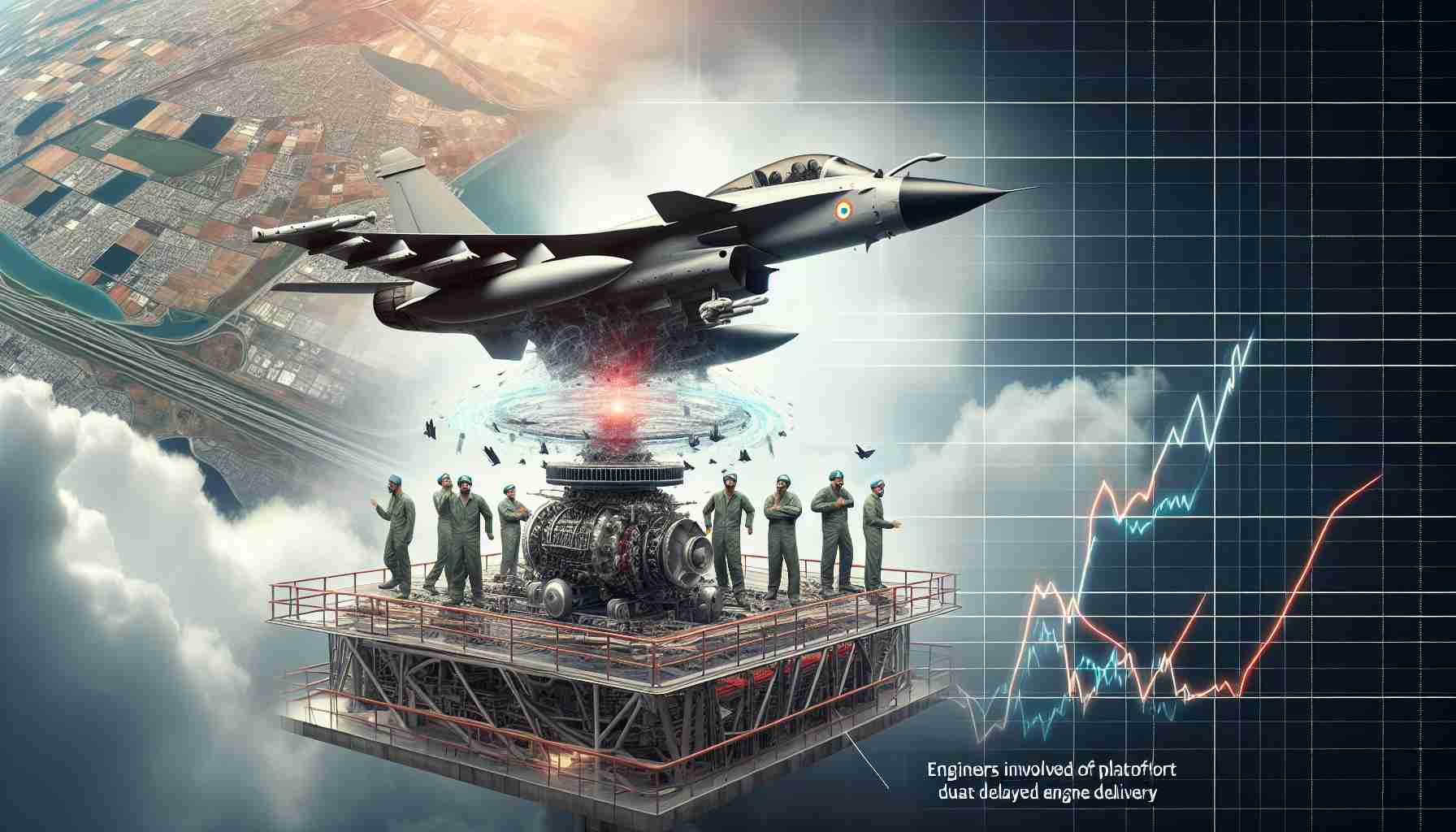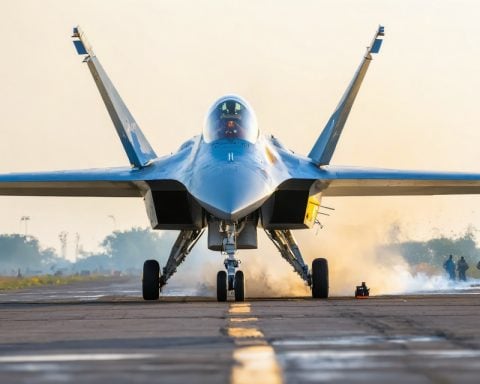The delivery of crucial jet engines for India’s Tejas Light Combat Aircraft series is facing significant setbacks, leading to possible penalties for General Electric Co. These engines, known as the F404, are essential for the Indian Air Force and were initially scheduled for delivery by 2023. However, recent reports indicate that this timeline has been extended to March 2025.
In 2021, Hindustan Aeronautics Ltd.—India’s state-owned aerospace giant—secured a $716 million agreement with GE for 99 engines. This delay poses a serious challenge to Prime Minister Narendra Modi’s initiative to domestically produce fighter jets amidst complex regional relations with neighboring China and Pakistan. The delays coincide with efforts to strengthen military cooperation between India and the United States.
Last year, a significant step was taken when GE and Hindustan Aeronautics signed a memorandum to develop a more advanced engine variant for India’s future light-combat aircraft. Nevertheless, India’s defense sector is being tested by the ongoing engine supply chain issues, highlighted by GE Aerospace’s acknowledgment of unprecedented pressures globally. CEO Larry Culp pointed out multiple supplier-related disruptions, affecting deliveries worldwide.
This delay exacerbates India’s urgency to update its military capabilities as older Soviet-era aircraft are phased out. Despite Russia being a historical military supplier, the focus is shifting towards enhancing self-reliance in the defense sector. The government has made a substantial investment, ordering hundreds of the Tejas jets as well as a newer advanced version, underscoring the critical need for timely engine delivery to fulfill its strategic objectives.
Global Jet Engine Shortage: A Ripple Effect on Modern Warfare and Economic Strategies
Introduction
The delay in delivery of jet engines for India’s Tejas Light Combat Aircraft has sparked a series of global conversations about the broader implications of supply chain disruptions in the defense sector. This issue not only affects India but resonates across countries relying on advanced aviation technologies to bolster their military capabilities. As nations grapple with similar challenges, fascinating insights into the impacts and controversies of these delays emerge.
Impacts on Global Military Strategies
The global jet engine shortage underscores a broader issue affecting military operations worldwide. As countries like India strive to modernize their air forces, the bottlenecks in the supply chain can significantly shift geostrategic balances. Nations relying on timely upgrades to their defense arsenals now face heightened vulnerabilities, potentially altering regional power dynamics.
Advantages:
1. Push for Innovation: Supply chain hurdles could prompt countries to innovate internally. For India, this delay may accelerate the growth of indigenous aerospace capabilities, spurring technological advancements and local expertise.
2. Strengthening Alliances: The challenges faced by India might strengthen its military collaborations with nations like the United States, fostering joint development programs and sharing of critical technologies.
Disadvantages:
1. Strategic Vulnerability: Delays in acquiring advanced military technology can leave countries exposed, particularly those in volatile regions.
2. Economic Strain: For nations heavily investing in modernizing their military, delays increase costs and divert resources from other essential programs.
Broader Economic Impact
The defense industry isn’t the only sector feeling the pressure from supply chain bottlenecks. The ripple effect extends to the broader economy, influencing manufacturing and employment rates, especially in regions heavily reliant on defense contracts.
Advantages:
1. Job Creation: Efforts to enhance domestic manufacturing in response to global shortages can lead to job creation and economic boost within the aerospace sector.
2. Technological Progress: Increased focus on domestic capabilities can expedite progress in associated technologies, benefiting civic and commercial sectors.
Disadvantages:
1. Investment Risks: Uncertainties in supply chain reliability can deter investors, affecting stock performances of defense-related companies.
2. Defense Spending Diversions: Prolonged delays might force governments to reevaluate defense budgets, potentially at the cost of other critical public services.
Controversies and Discussions
The situation presents several controversies. Primarily, it raises questions about the dependency on foreign technology and parts in critical national defense strategies. While reliance on international suppliers for cutting-edge technology is common, geopolitical tensions can easily disrupt these links.
Key questions include:
– How can nations reduce dependency on foreign technology while maintaining cutting-edge capabilities?
Building robust domestic R&D infrastructure and engaging in strategic partnerships for technology transfers can be paths forward.
– What are the long-term implications for global defense alliances?
While short-term collaborations might strengthen, nations may push towards a more balanced approach between self-reliance and cooperative engagements to safeguard against future uncertainties.
Related Links
For those interested in learning more about the aerospace industry’s response to global challenges, visit GE Aviation. For insights into India’s defense strategies and partnerships, explore Hindustan Aeronautics Limited.
In conclusion, while the delivery delays of the F404 engines for India’s Tejas aircraft present immediate challenges, they offer an opportunity to reevaluate and strengthen global logistics and technological independence in the defense sector.







